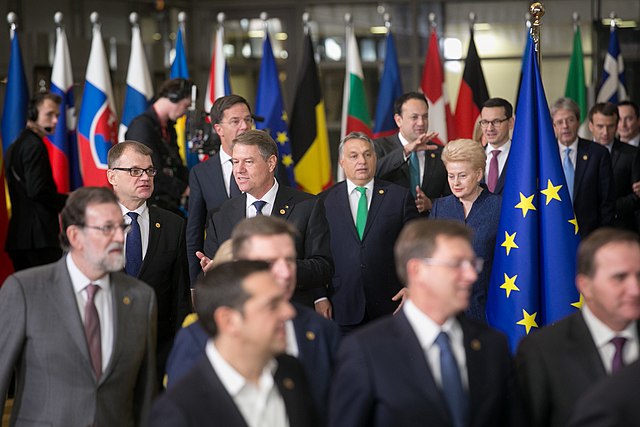Gay identity and politics amid hostile Hungary

Viktor Orban in an European Council Meeting
Jacob Sagers – Russia’s invasion of Ukraine last year intensified debate over Hungary’s standing in the European Union and West amid Russian influence. David Pressman, the United States’ new ambassador to Hungary, marks a rapid change from his predecessor known for praising the Prime Minister Viktor Orban’s increasingly illiberal government. Mr. Pressman is openly gay, and this has created challenges for foreign policy towards Hungary. The LGBTQ+ community is frequently used as a scapegoat to bolster nationalism by the Hungarian government and media.
Nationalism is taking the idea of shared attachment to a nation and using it to justify political action. Hungarian identity has been built around the Hungarian ethnic group. This has shifted with Orban distancing himself from the West and pushing Hungary to a more Russian friendly stance. It has the potential to reconfigure regions in Europe, or places grouped together by similarities. Hungary is technically within the Schengen area and the European Union’s region. In recent years, they have distanced themselves from the EU while trying to maximize its economic benefits, has posed new problems for the E.U. Furthermore, nationalistic views created by the government are used to justify their actions and ignore dialogue over their relationship with Russia. The ambassador’s gay identity creates a new gateway for Hungary to manipulate the diplomatic agenda by using societal attitudes and government propaganda.
The consistent defaming of queer people in the country has enabled Hungary to delegitimize the American ambassador. It is reported that Hungarian officials start conversations with Mr. Pressman by saying: “Ambassador, it’s wonderful to meet you. I know you want to speak about gender progressive issues.” The conversations are civil but looping gay identity into politics has given a new avenue for political impasse. The focus on fighting gender and gay ideology legitimizes Orban’s conservative government to appease his nationalistic base but stonewalls attempts to focus on international issues. This approach questions to what lengths will the EU try to keep Hungary in its region, while enforcing LGBTQ+ policy, and how will Hungary respond?
Picture Credit: Photo distributed under the Creative Commons Attribution 2.0 Generic license. Source

